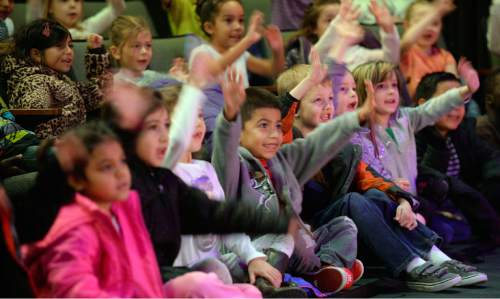This is an archived article that was published on sltrib.com in 2016, and information in the article may be outdated. It is provided only for personal research purposes and may not be reprinted.
The Utah Supreme Court has ruled that children under 5 cannot be held legally responsible for negligence, saying they have a limited capacity to appreciate how their actions can harm others and an "inadequate internal ability" to control impulses that might lead to injuries.
The ruling reverses a 3rd District Court order denying a request to dismiss negligence claims against a Cottonwood Heights boy, who was sued by his babysitter for allegedly causing her to lose all vision in one eye by throwing a toy in her face when he was 4 years old.
The 4-1 opinion, handed down Thursday, was the first time the high court has explicitly set a cutoff age for negligence liability.
Writing for the majority, Justice Christine Durham acknowledged children develop at different rates and some 4-year-olds are more mature than some 5-year-olds.
"Despite the inherent drawbacks of age-based rulemaking, however, we must engage in this line-drawing process to some extent," Durham wrote. "Legislatures have done so by setting the age at which individuals can work, drive, marry, vote, serve in the military, smoke, and drink alcohol, as well as establishing the age of consent."
Associate Chief Justice Thomas Lee dissented, saying cognitive psychologists have found that some children acquire the mental attributes necessary to be held responsible for their actions as early as age 3.
With that in mind, Lee said, he would adopt a tiered framework for assessing the negligence of children that would follow the "premises of cognitive psychology."
Youngsters under age 3 would be "categorically immune" from a finding of negligence, Lee wrote, and those between ages 3 and 7 would be presumed incapable of negligence but plaintiffs could rebut that presumption by presenting expert testimony of their capacity for the kind of thinking necessary to hold them responsible.
And children ages 8 or older would be held to a standard of a reasonable child of the same age, capacity and experience under similar conditions, Lee said.
The boy was 4 years and 9 months old when the incident occurred in 2011, according to court records. He allegedly became upset when his 14-year-old babysitter told him to share his toy dolphin with his younger brother and threw the hard toy at the teen, striking her right eye.
The babysitter had received a cornea transplant about a year before and the impact punctured her eye, causing her to lose all vision in it, according to court documents. In the suit, which was filed in 2012 in 3rd District Court, the girl accused the boy of negligence and his parents of negligent supervision.
Judge Denise Lindberg granted a motion in 2013 to dismiss the girl's negligence claims against the parents but denied a motion to dismiss the claims against the boy.
The denial led to an appeal and the Supreme Court ruling.
Twitter: @PamelaMansonSLC



